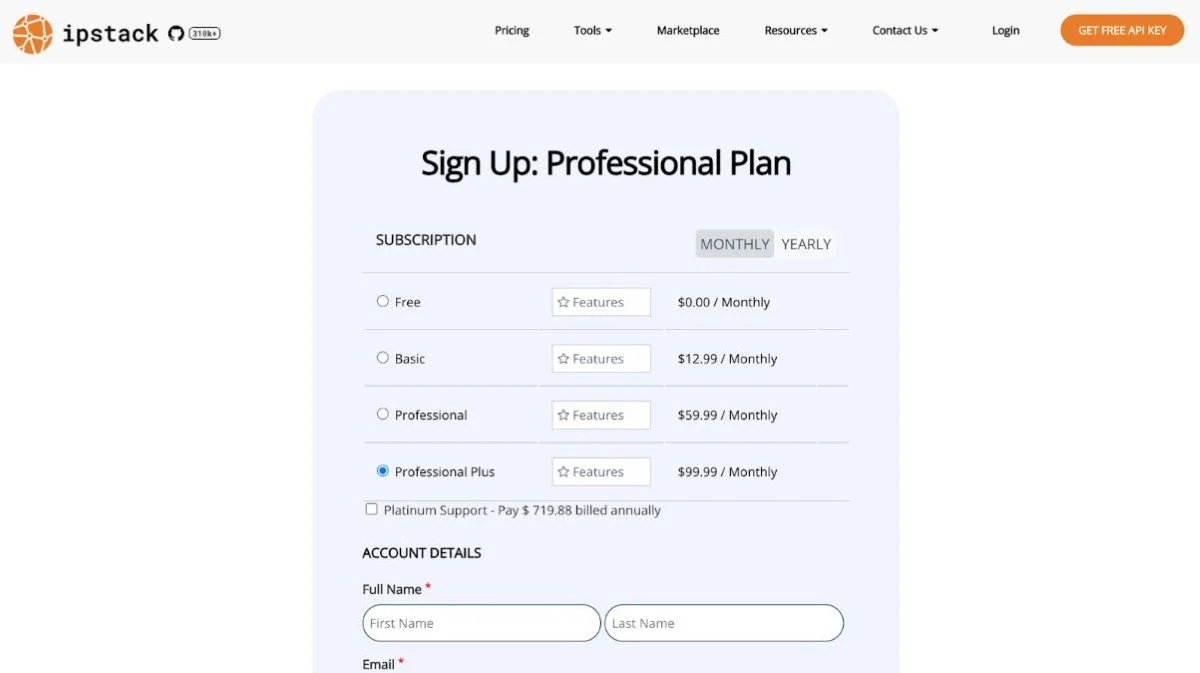In today’s digital ecosystem, understanding user behavior and location is crucial for building secure, personalized, and efficient applications. Developers and technology teams increasingly rely on advanced tools like an IP intelligence API and a real-time IP address lookup API to access accurate IP data. These APIs enable developers to identify users’ locations, detect potential threats, optimize application performance, and deliver personalized experiences.
From e-commerce platforms to financial services and cybersecurity applications, IP intelligence has become a cornerstone of modern software architecture. This article explores the value of these APIs, practical integration tips, use cases, features to consider, challenges, and answers common questions that developers face.
What is an IP Intelligence API?
An IP intelligence API is a service that enriches IP addresses with actionable data. Unlike simple IP-to-location mapping, IP intelligence provides a broader spectrum of information, including:
-
Geolocation data: Country, region, city, postal code, latitude, and longitude.
-
Network insights: ISP, organization, domain, and connection type.
-
Security risk evaluation: Detection of VPNs, proxies, TOR exit nodes, or suspicious IPs.
-
Historical patterns: Past activity associated with the IP for fraud detection.
For developers, this means more than just knowing “where” a user is—it’s about understanding context, security, and behavioral patterns linked to an IP.
What is a Real-Time IP Address Lookup API?
A real-time IP address lookup API focuses on instantly retrieving location and network information from an IP address. It allows applications to respond immediately to user requests with accurate geographic and network details. Key benefits include:
-
Instant personalization: Display content based on location, such as language, currency, or regional promotions.
-
Fraud prevention: Identify suspicious logins or unusual activity in real-time.
-
Analytics and reporting: Understand user distribution and network trends for decision-making.
Combined with an IP intelligence API, a real-time lookup API gives developers both depth and immediacy, empowering smarter application responses.
Why Developers Need These APIs
Modern applications face several challenges that these APIs help solve:
-
Fraud prevention: Many industries, especially finance and e-commerce, need to detect anomalies in login locations. APIs allow developers to cross-check IP addresses against risk databases.
-
Content personalization: Location-aware apps can deliver local language content, region-specific offers, and optimized UI/UX.
-
Network analytics: Real-time insights into where users are connecting from help businesses optimize performance and server allocation.
-
Compliance and regulation: Restrict access or enforce rules based on geolocation to adhere to regional laws.
-
User experience improvement: Faster, smarter apps that adapt dynamically to user context.
By integrating these APIs, developers not only improve app functionality but also enhance security, reduce operational risk, and increase engagement.
Features to Consider in an IP Intelligence or Lookup API
When selecting an API for your application, consider the following:
-
Accuracy of data – High-quality IP databases with regular updates.
-
Global coverage – Support for IPs from every region, including mobile networks.
-
Real-time response – Minimal latency for live applications.
-
Scalability – Ability to handle millions of requests efficiently.
-
Security and privacy compliance – GDPR and other regional regulations adherence.
-
Developer-friendly – REST endpoints, SDKs, and comprehensive documentation.
-
Free or trial tiers – Enable testing before committing to paid plans.
High-quality APIs often provide enriched intelligence, combining geolocation with network, ISP, and threat data for comprehensive insights.
Real-World Use Cases
1. E-commerce Security
E-commerce platforms are vulnerable to fraudulent activities such as account takeovers or payment fraud. By integrating an IP intelligence API, developers can detect high-risk IP addresses, verify user locations, and implement additional authentication steps only when suspicious activity is detected.
2. Content Personalization
Developers can deliver tailored experiences by using a real-time IP address lookup API to determine a user’s country or city. For example, showing prices in local currency, promoting region-specific products, or displaying content in the user’s language improves engagement and conversion rates.
3. Ad Targeting
Advertising platforms benefit greatly from IP intelligence. By identifying user location and network type, ads can be served more precisely, leading to better click-through rates and ROI.
4. Cybersecurity Monitoring
Financial institutions and SaaS platforms can monitor login patterns using these APIs. Suspicious logins from unusual IP locations or flagged networks can trigger alerts or temporary access restrictions, mitigating risks.
5. Analytics and Insights
Applications with global audiences require insights into traffic distribution. Real-time lookup APIs allow developers to segment users by geography, analyze trends, and make informed decisions about server locations, CDN usage, or marketing strategies.
Step-by-Step Integration Workflow
Here’s a practical workflow for integrating these APIs into an application:
-
Register and Obtain API Key
Sign up with the API provider and generate an API key to authenticate requests. -
Make API Request
Send an HTTP GET or POST request to the API endpoint, passing the IP address. Example (pseudo-code): -
Parse the Response
The API typically returns a JSON object containing location, ISP, security flags, and other metadata. -
Implement Logic
Use the data to customize user experience, detect fraud, or feed analytics dashboards. -
Error Handling
Implement fallback logic for missing or inaccurate data and handle rate limits.
Challenges and How to Overcome Them
Even high-quality APIs have challenges developers should consider:
-
VPN and Proxy Detection – Users masking their IP can reduce accuracy. Solution: use IP intelligence with VPN detection features.
-
Dynamic IPs – Mobile or ISP-assigned dynamic IPs can change frequently. Solution: combine historical analysis with real-time lookups.
-
Data Freshness – Old databases may provide inaccurate information. Solution: choose providers with frequently updated global IP databases.
-
High Traffic Volume – Large-scale applications need scalable APIs to avoid throttling. Solution: use providers with enterprise-grade infrastructure and caching mechanisms.
Best Practices for Developers
-
Use caching – Store IP lookup results temporarily to reduce repeated requests.
-
Monitor API usage – Track requests, errors, and latency to optimize performance.
-
Combine APIs for enrichment – Use both IP intelligence and real-time lookup for deeper insights.
-
Ensure privacy compliance – Avoid storing sensitive user data without consent.
-
Test free tiers – Evaluate accuracy and features before upgrading to paid plans.
FAQs
Q1: What is an IP intelligence API?
A1: It’s a service that enriches IP addresses with location, network, and security-related data for developers.
Q2: What’s the difference between real-time IP lookup and IP intelligence?
A2: Real-time IP lookup provides immediate location and network details, while IP intelligence adds context like threat scores, ISP info, and historical patterns.
Q3: Can these APIs detect VPNs and proxies?
A3: Yes, many advanced IP intelligence APIs include VPN, proxy, and TOR detection.
Q4: Are these APIs suitable for mobile apps?
A4: Absolutely—most providers support mobile and web applications seamlessly.
Q5: Are there free options?
A5: Yes, many APIs offer free tiers with limited requests for testing and development purposes.
Q6: How accurate are these APIs?
A6: Accuracy depends on the provider, data freshness, and coverage of global IPs. Top providers achieve over 95% accuracy for most regions.
Q7: Can these APIs be used for compliance purposes?
A7: Yes, they help enforce regional restrictions and support GDPR and other privacy regulations.
Conclusion
Integrating an IP intelligence API and a real-time IP address lookup API allows developers to build smarter, more secure, and user-centric applications. These tools provide not only accurate geolocation data but also insights into network types, fraud risks, and user behavior. By following best practices, leveraging free tiers, and carefully selecting providers, developers can enhance application security, improve user experiences, and gain valuable analytics without complexity.
Whether you are building an e-commerce platform, SaaS application, or security-focused service, these APIs are essential for modern, data-driven development.






